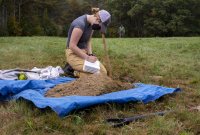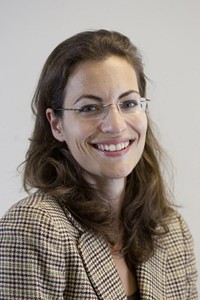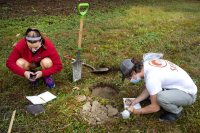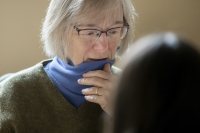
Sonja Pieck, Kroepsch Award recipient, to discuss education as activism
Sonja Pieck, assistant professor of environmental studies at Bates College, offers a lecture titled Teaching (and Learning) as Transborder Activism at 4:30 p.m. Wednesday, Nov. 30, in the college’s Edmund S. Muskie Archives, 70 Campus Ave.
Pieck was one of two Bates faculty members to receive this year’s Ruth M. and Robert H. Kroepsch Award for Excellence in Teaching. The other was Nancy Koven, assistant professor of psychology. Bates students and recent alumni nominate faculty for the award, and a committee of previous Kroepsch recipients selects the honoree.
The lecture is open to the public at no cost. Refreshments precede the talk, at 4:15. The event is co-sponsored by the Kroepsch Award Selection Committee, division chairs, Information and Library Services, and the Dean of the Faculty’s Office. For more information, please call 207-786-6066.
Pieck is giving the lecture in connection with the Kroepsch Award. A geographer by training, she researches local-to-global struggles over natural resources, with a regional focus on Latin America.
She is the social-science faculty member in the environmental studies program, which is broadly interdisciplinary at Bates. Her courses explore the human-environment relationship through topics like social movements, NGOs, indigenous politics and environmental justice.
She is particularly interested in transnational social movements, focusing on Latin American indigenous activism and its intersections with U.S. environmentalism. Pieck is also developing a new research project examining state rule and networks of civic resistance to regional integration initiatives in South America, especially Peru.
Before coming to Bates, she was a postdoctoral lecturer and research associate in environmental studies at the University of Chicago.
“Her enthusiasm, passion and commitment toward [environmental] issues resonate in her well-structured and interesting lectures,” says Teresa Cooper, a 2011 Bates graduate from St. Albans. “Her class opened my eyes to so many environmental issues that I had never even heard of before, and as a result I found myself changing aspects of my lifestyle.”
“Sonja’s a great listener and is always ready and willing to learn from students,” adds Desmond Mushi, a junior from Mwanza, Tanzania.





